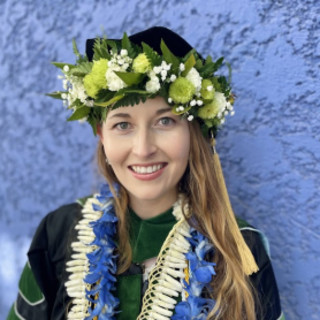I am grateful to have matched into orthopaedic surgery residency, especially as a DO. This year’s Match demonstrated increasing competitiveness for all surgical applicants. For orthopaedic surgery, there were 1,470 applicants for 875 positions, resulting in an overall 60% match rate. Among the 205 DO applicants, only 111, or 54%, were matched. For general surgery (categorical), there were 397 DO applicants (13% of the total applicants) for 1,622 spots — and only 53% matched. This year, matching became more challenging, due in part to limitations on audition rotations because of the COVID-19 pandemic and an increased emphasis on research experiences.
On my journey, I experienced comments such as “you’ll be eaten alive in ortho,” “you’re too enthusiastic to be a surgeon,” and “your personality fits primary care better.” Thankfully, I have a wonderful support system and did not let these comments discourage me — but I am concerned that (even well-meaning) comments like this could discourage someone else. All fields of medicine need compassionate clinicians. I hope to pay forward the knowledge and kindness offered to me on my journey, so more people, especially underrepresented minorities and women, consider surgical specialties and do not let unproductive comments deter them. Below is advice that helped me accomplish my dream of matching.
Mentorship:
It is critical to seek out mentors and not feel discouraged if you have limited resources at your institution. My medical school did not have any orthopaedic surgery faculty, so I sought out alumni and looked for opportunities to find mentors. For example, during my internal medicine rotation, one of my patients had a hip fracture, so I asked my preceptor if I could consult the orthopaedic surgeon. The consulting orthopaedic surgeon was excited that I asked to scrub in and learn from her. She had not worked with a DO student before, but took me under her wing. She invited me to do a month-long rotation with her and wrote me a letter of recommendation.
Letters of Recommendation:
If you are hoping to get a letter of recommendation, check in before, in the middle, and at the end of a rotation to discuss expectations and goals, and be receptive to feedback. It is critical that you ask preceptors whom you believe know you well and can write you a strong letter. Most programs will allow three to four letters. Note that many specialities, such as general surgery and orthopaedic surgery, request Standardized Letters of Evaluation (SLOE).
Audition Rotations / Sub-internships:
Audition rotations provide you with the opportunity to showcase your teachability, work ethic, and how you “fit” with the program culture. Programs want to bring people onto their team who are dependable, accountable, and will help uplift the program’s reputation. For example, on one of my audition rotations I asked the nurses if I could put in the Foley catheters. I was later told that I was the first medical student they had ever had who asked to do this, and they trusted me to help with more tasks to increase room preparation and turnover. This taught me two important lessons: One, never underestimate the impact you can have as a medical student; two, no task is ever beneath you. It’s a small world, so be kind to everyone, including those who are often overlooked, such as cleaning staff.
Commitment to Specialty:
Whenever you do figure out what field(s) interest you, join their specialty societies. The American College of Osteopathic Surgeons, along with the American College of Surgeons have helpful materials for medical students. For orthopaedic surgery, I highly recommend that women and underrepresented minorities pursuing orthopaedics join the Ruth Jackson Orthopaedic Society and the J. Robert Gladden Orthopaedic Society, both of which aim to increase diversity within orthopaedics. There are countless other helpful societies and organizations to look into.
Research / Presentations:
In general, you do not need to be published, but you do need to show interest. There is an increasing emphasis on research, which can be challenging to obtain at many institutions with limited resources and no formal mentorship program to engage medical students in research. I am grateful to have been connected through an orthopaedic specialty society to help with a remote research project. Network and get creative with ways to seek opportunities. Present as much as you can, including non-research presentations such as at Grand Rounds and webinars.
Personal Statement:
It can feel daunting to write a personal statement and to try to encapsulate yourself in under a page. I recommend taking notes on memorable patients/experiences to reference later, such as using voice to text transcription on your drive home. Consider what aspects make you unique even outside of medicine, such as adversities you’ve overcome. For example, I wrote about helping on my grandparents’ dairy farm and being a competitive hula dancer. During my interviews, these experiences were routinely discussed and helped me demonstrate personal attributes outside of my academic/medical roles. Have many people review your statement, including preceptors, mentors, medical and non-medical individuals, and individuals who don’t know you well. Be authentic and show why you deserve to be considered among the thousands of other exceptional candidates.
Leadership / Extracurriculars:
Be strategic about what roles you take on with your limited time by doing things you are excited about. Don’t just do something because you think it will look good on your application. During interviews, you will be asked about roles you’ve taken on and it will be evident if you are genuinely passionate about the work you did.
USMLE:
Many surgical programs will not consider DO applicants without completing the USMLE. Hopefully, this will change as the COMLEX Level 1 and USMLE Step 1 are now pass/fail, and the surgical field becomes more inclusive toward DOs.
Recommend Sites to Research Programs:
- National Residency Matching Program (NRMP)
- Doximity Residency Navigator
- Residency Explorer
- FREIDA Residency Program Database
If you are questioning yourself or feel the weight of imposter syndrome, you are not alone. Keep
showcasing your teachability, kindness, humility, diligence, and eagerness to improve daily.
Good luck on your journey and know that there are many people rooting for your success!
Do you have any advice for Match applicants? Share your experiences in the comments below!
Janae Rasmussen is an incoming PGY-1 Resident Physician at Valley Consortium for Medical Education's Orthopedic Surgery Residency Program in Modesto, CA. She is a graduate of A.T. Still University's School of Osteopathic Medicine in Arizona.
Animation by Diana Connolly







